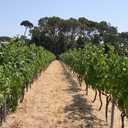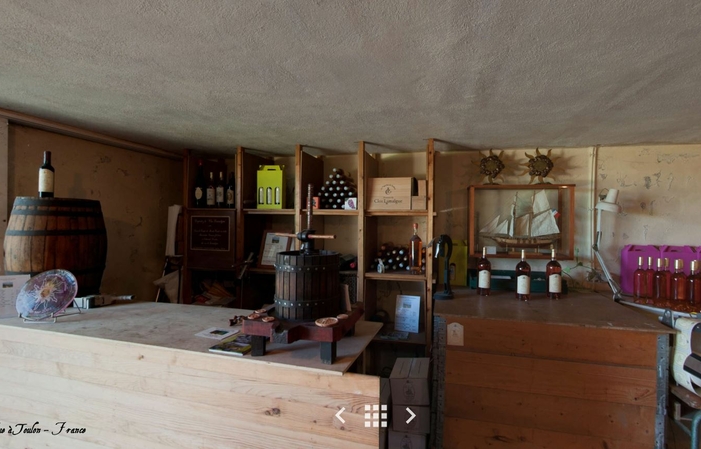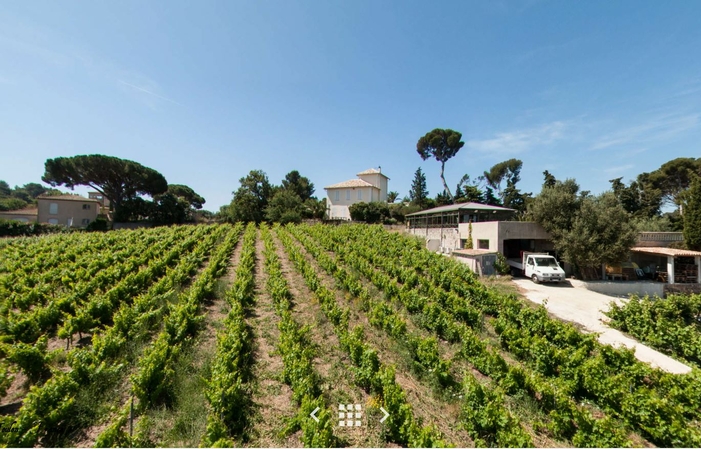Description
The first Provençal vines were planted by the Greeks, about 600 bc. Then the Romans established large estates, developing production and trade by promoting the development of wines. Later in the Middle Ages, their reputation transcended borders and by the 17th century, La Malgue wine was one of the most popular wines in France.
The origin of La Malgue probably comes from the Provençal "Lou Margo" , the Marge. It refers to this strip of land stretching along the Toulon coastline called the Rade des Vignettes. It is on this coastline that Clos Lamalgue is located, producing red, white and rosé wines vinified in the former water reserve of the property, now transformed into a cellar. The material of this cellar with thick stone walls, meets the highest standards ensuring a careful winemaking. A cold group keeps the vats at room temperature, and thus brings aromatic quality to the wine. The bottling takes place on the estate, like all stages of winemaking.
Our red wines are pleasant in their youth but also excellent wine of care. Half-peeled harvest with a few months of barrels to adjust their frame.
Our rosé wines are particularly monitored for the first 15 days after it is put in vats. The refrigeration of the vats at 19oC, which is constantly controlled, favours slower winemaking, thus retaining all the organoleptic qualities of the wine. This dry and very fruity wine can be enjoyed fresh, as an aperitif and throughout the meal.
Finally, our white wine comes from a single grape variety, Rolle or Vermentino. It is developed according to the same winemaking process as rosé. Its great persistence in the mouth, its aromas of garrigue and its freshness make this dry white wine appreciate on all occasions.
Rules and conditions
Visits at 1 euro means that they are made free of charge by the winemaker. This amount is requested to assure us of the seriousness of your request and to prevent the winemaker from blocking a visiting slot unnecessarily.
In case of unforeseen events, we thank you for cancelling your visit to the platform and/or notify the winemaker directly.
Reservation policy
Cancellation policy: : Strict
Products offered for tasting:

Domaine du Clos Lamalgue Professional seller
Lamalgue wines through the centuries ... Louis XIV's privileged wine The first Provençal vines were planted by the Greeks, about 600 bc. Then the Romans established large estates, developing production... See more
Lamalgue wines through the centuries ... Louis XIV's privileged wine The first Provençal vines were planted by the Greeks, about 600 bc. Then the Romans established large estates, developing production and trade by promoting the development of wines. In the Middle Ages, their reputation transcended borders, and as early as the 17th century, La Malgue wine was one of the most popular wines in France. The stamp of the vignettes In the past, the sailors of the Royals arriving from the sea, could embrace with the eyes of the multitude of plots scattered around the harbour of Toulon. Each offered its appaly, Clos Marguerite, Clos Petit Bois, Clos Lamalgue... The origin of La Malgue probably comes from the Provençal "Lou Margo" , the Marge. It refers to this strip of land stretching along the Toulon coastline called the Rade des Vignettes. An island of resistance From the end of the 19th century, the production of Tibourin wine and the old wine of Sainte Marguerite linked the fate of the Domaine du Clos Lamalgue to that of the vineyard. Located between the Mediterranean and Mount Faron, this hill surrounded by the city of Toulon insolely spreads its three hectares bathed in sunshine, proudly resisting the real estate pressure. It owes its survival to the stubbornness of the Monges family, which acquired it in 1930. The tradition has been carried on with the same enthusiasm for three generations; the fourth is already following in the footsteps of the grandfather. In love with the land, Jean Claude Monges has given the estate a new lease of life and is marketing his first vintage in 1992, keeping this islet of greenery in the heart of the city. Today, his two sons René and Philippe have taken over the torch. See less

- ID Card:
- Email:
- Already rent:



